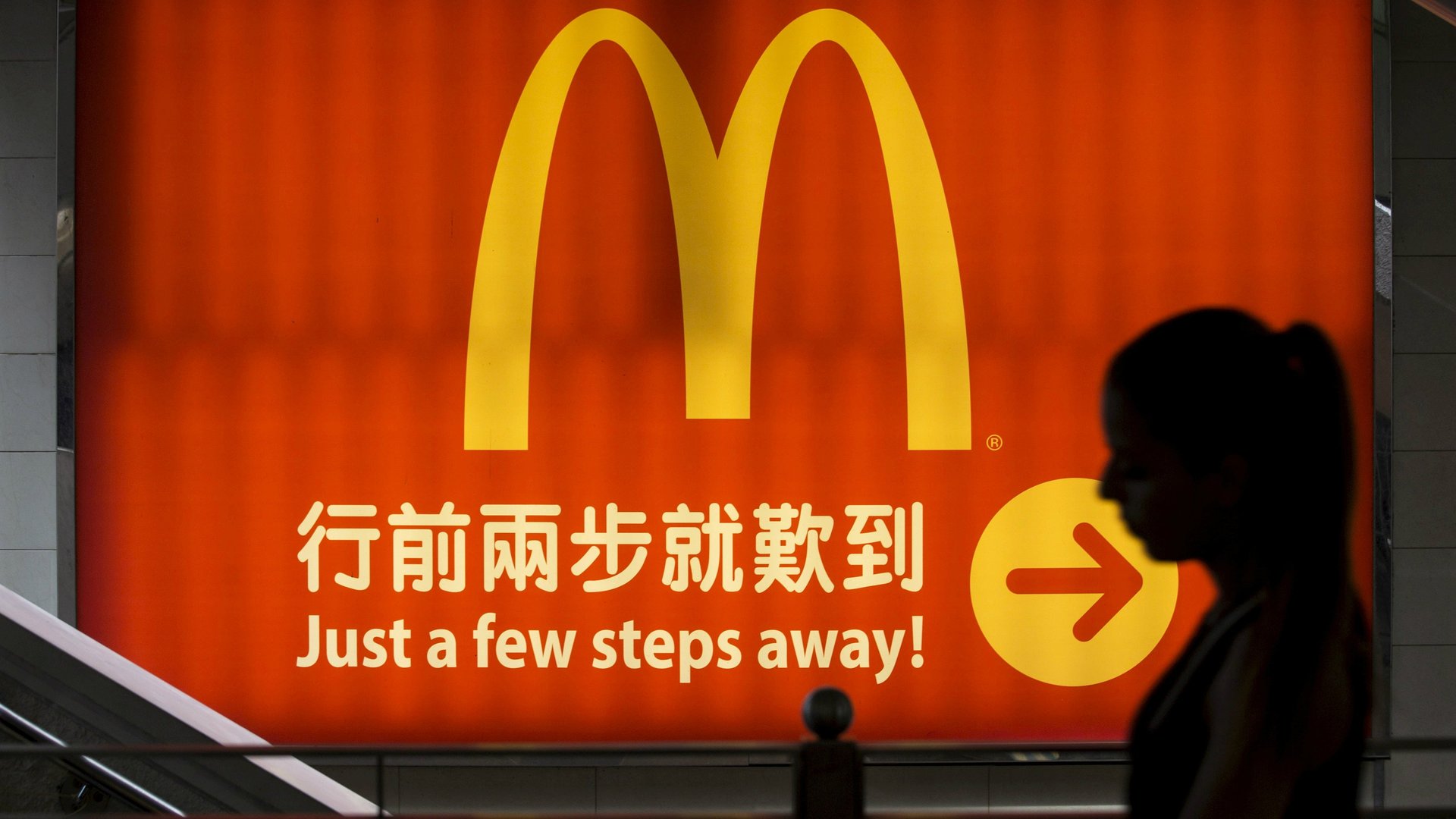Chasing elusive growth in China, McDonald’s cedes power to franchisees
The world’s largest fast food chain loosened its grip on the Chinese market in a $2 billion deal to sell absolute control over its restaurants.


The world’s largest fast food chain loosened its grip on the Chinese market in a $2 billion deal to sell absolute control over its restaurants.
The move, announced Jan. 9, will effectively unleash its 2,640 Chinese and Hong Kong locations into a franchise model, giving more autonomy to local franchisees to run individual restaurants while reducing risk for the larger corporation. In relinquishing control, the fast food behemoth is hoping menu innovation, technological upgrades, and delivery will drive growth and justify the opening of 1,500 new locations by 2022.
The deal, good for two decades, gives the franchise rights to state-owned conglomerate, Citic, and the Carlyle Group, a private equity firm. Citic will have a 52% controlling stake, Carlyle will take 28%, and McDonald’s will maintain a 20% stake.
The fast food chain has struggled to gain solid footing in the Chinese market for years, reporting tepid sales growth at its locations in Asia, the Middle East, and Africa, according to financial filings. Midway through 2015 the company stopped reporting its growth by geographic region, making it more difficult to discern performance in Asian markets.
Still, language in the filings showed growth of McDonald’s in China was still being dogged by external factors, including temporary protests over political turmoil in the South China Sea. McDonald’s isn’t the only American fast food chain to struggle in China. Yum Brands, which owns KFC and Pizza Hut, has also experienced slow growth. That led the company in 2015 to spin off its Chinese operation into a separate company.
In a statement by Carlyle Group, the new McDonald’s partnership intends to open new locations in more mid-size cities. Whether the American fast food chain can attract and retain new customers in those markets remains to be seen. As one analyst told The New York Times (paywall), Chinese consumers are not “great burger eaters.”